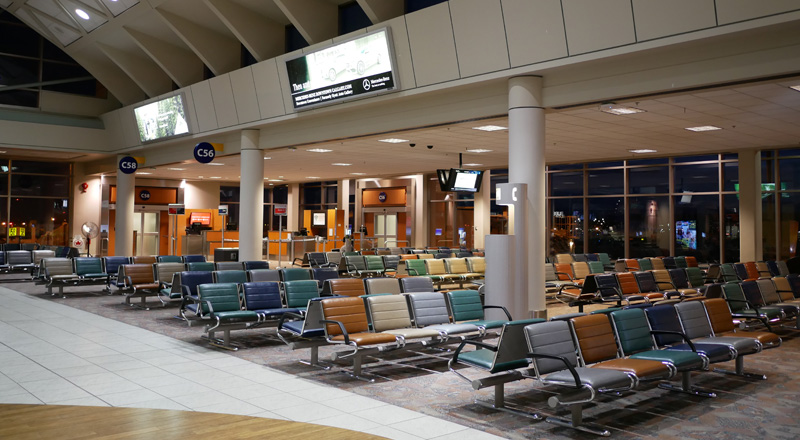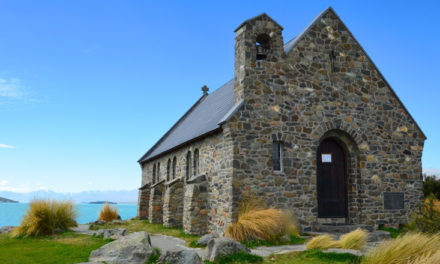The Patience Paradox
The whakataukī (Māori proverb) for this post is: “E noho e, kia raungāwari.” [Wait and be flexible | Sit down and bide your time.]. Back in March 2018 I noted that this proverb to me evokes “something like a cross between ‘patience is a virtue’ and ‘be still and know that I am God’. In other words, ‘Chillax, God’s got it sussed’”..
We could well be slowly spiraling toward a new climax of historic significance.
Last night, I stood outside and watched a vortex open up in an otherwise cloudy canopy, revealing a clear sky and bright moon beyond. The wind must have been swirling at just the right height to create the spiral opening. As I watched the natural phenomenon, it brought to mind a random thought. In an age of rapid narration, where stories go from incident to climax to resolution in a 2 hour movie or a 40 minute TV programme (or less on YouTube), it never occurred to me that the end of the world as we know it might happen as if in slow motion over a matter of months. I’m not prophesying Jesus’ immediate return (just yet), but we could well be slowly spiralling toward a new climax of historic significance.
COVID-19 has shown itself to be a catalyst for significant change in the world—increased economic stress and heightened injustice exposure for example. From the earliest days of its spread beyond China to Italy, Iran and Western Europe, futurists were predicting severe impact. They were not wrong, they are not wrong. We have felt some of the early impact, but there is much more to come. A few days ago Tedros Ghebreyesus, Director General of the WHO warned that the end of COVID-19 “is not even close… the pandemic is actually speeding up”. In New Zealand, where the virus is currently contained to quarantined arrivals at our border, it is very tempting to relax and rush back into things as if they were continuing as normal. It might currently feel that way—but it will be a short-lived fantasy. We need to stay buckled into our seats, this ride is a long way from over.
It would be very dangerous for Jesus-followers to seek ways to anesthetise ourselves on the journey ahead.
“Are we there yet?” used to be a familiar whine from kids in the back seat on road trips. Not so much today thanks to digital entertainment and mobile broadband. When I (used to) travel, a 12 hour flight whips by with iPad in hand. The digital world has created an illusion of truncated time and space. I liken it to those long rides we used to take at Christmas, parents strategically setting out late at night so us kids would fall asleep in the car and wake up at our destination as if we’d travelled in an instant. But in our current milieu, it would be very dangerous for Jesus-followers to seek ways to anaesthetise ourselves on the journey ahead. This historic moment is what we were born-again for. This is a missional moment. It is time for Christ’s Church to engage in unified compassionate action so the world will know and believe that the Father lovingly sent the Son (John 17:18-25).
I am speaking here of a paradox of patience. On the one hand, settling into the long journey of change that will result from the chain-reactions created by COVID-19. On the other hand, not becoming complacent, but instead embracing opportunity. The “Be still” of Psalm 46:10 does not mean ‘cease activity’, but ‘calm the restlessness’.
Jesus’ command to the tempest (Mark 4:39) is a wonderful illustration of this. The Psalmist relates our calmness with the fulfilment of God’s mission: God exalted among the nations—something God will achieve, sometimes through us, but not by us. The Psalmist ends with the promise of God’s presence with God’s people, exactly the same way Jesus concludes His commission to the disciples in the gospel of Matthew. God’s presence is peace, and our participation requires patience.
“People who live a patient lifestyle trust God and do not try to manipulate outcomes.”
In his marvellous (and missional) book, The Patient Ferment of the Early Church, Alan Krieder turns evangelistic fervour on its head and argues that the missional mark of the early church was actually patience. He writes, “throughout the early centuries the Christian churches continued to grow numerically. Arguably, a significant reason for this growth was the Christians’ patience” and notes, “People who live a patient lifestyle trust God and do not try to manipulate outcomes…” The early Church focused its energies on living out the shalom values of the Kingdom of God, loving one another in new-covenant unity that was attractive to a world fragmented by power and greed and callous disregard for others—and the Church added to their number daily, for more than three Centuries, under persecution. Their lifestyle was in stark contrast to those around them. Their witness was welcomed. I believe the liberal morality of secular humanism will decay rapidly in the days ahead without the Judeo-Christian foundations required for them to function. This will provide an opportunity for a prepared Church to shine all the more, as we live in perfect peace, empowered by the Holy Spirit presence of the living God to love one another with mutual commitment.
Maybe it is time for missions to focus more on going deep—committing to communal mutuality in unreached localities. Border shut-downs will continue to frustrate expatriate aspirations, so indigenous missions must ascend, with cross-border support from global resourcing commitments. Let’s listen to the Spirit through Scripture, calm the restless desire to achieve what only God can do, and look for the new opportunities to move forward together and #stayonmission.
Whakapaingia te Atua, to tatou kaiunga ki te ao whanui (May we be blessed as God sends us into the wider world),
Jay






